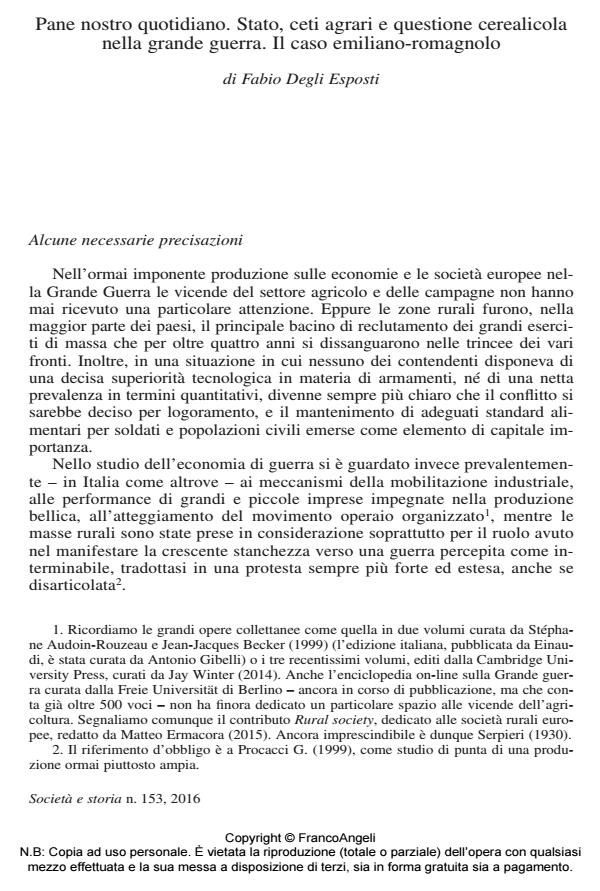Our daily bread. State, rural classes, and cereals production during the First World War. The regional case of Emilia Romagna
Journal title SOCIETÀ E STORIA
Author/s Fabio Degli Esposti
Publishing Year 2016 Issue 2016/153
Language Italian Pages 39 P. 485-483 File size 1082 KB
DOI 10.3280/SS2016-153002
DOI is like a bar code for intellectual property: to have more infomation
click here
Below, you can see the article first page
If you want to buy this article in PDF format, you can do it, following the instructions to buy download credits

FrancoAngeli is member of Publishers International Linking Association, Inc (PILA), a not-for-profit association which run the CrossRef service enabling links to and from online scholarly content.
The essay takes into account an essential aspect of the agricultural production, that of cereals for human consumption: a sector in which Italy was not able to cover its needs and was forced to resort to massive imports, which had become very difficult during the war. Starting from the basic data the author examines the measures undertaken by the State to try to boost grain production. The focus of the analysis, however, is represented by the attitude taken by the agrarian lobbies towards these demands. The essay underlines how the margins for an effective action were always very close: the landlords were not ready to sacrifice the high income produced by specialized crops to the production of less valuable cereal, while the peasants’ trade unions did not intend to give up their freedom of action in terms of labor relations and wage demands. The Italian rural areas, the most affected by calls to arms, became more and more the stage of strong protests against the war, paving the way towards the harsh political and social confrontation of the post-war years.
Keywords: First World War, Italy, Emilia Romagna, War economy, Agriculture, Agrarian press (Agrarian lobbies).
- La storia sociale contemporanea in Italia: tempi e temi Il caso di «Società e storia» Nicola Labanca, in SOCIETÀ E STORIA 178/2023 pp.743
DOI: 10.3280/SS2022-178006
Fabio Degli Esposti, Pane nostro quotidiano. Stato, ceti agrari e questione cerealicola nella grande guerra. Il caso emiliano-romagnolo in "SOCIETÀ E STORIA " 153/2016, pp 485-483, DOI: 10.3280/SS2016-153002